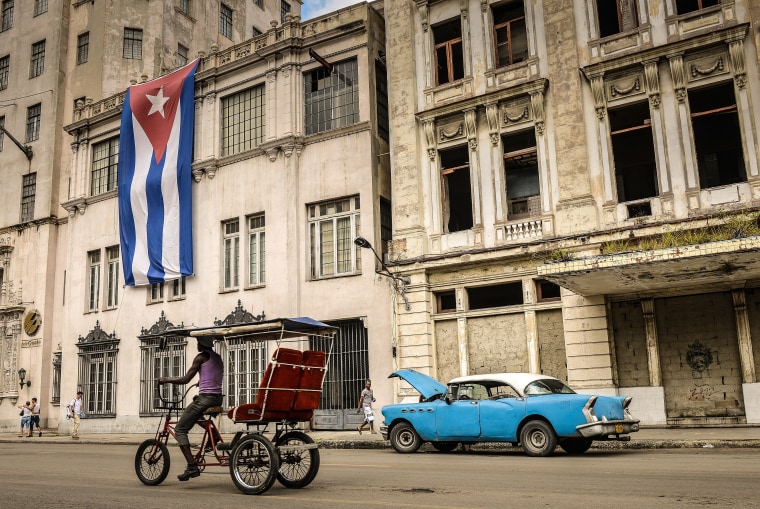Congressional opponents of President Barack Obama’s efforts to restore relations with Cuba are trying to roll back his policy changes through spending bills, but the White House on Tuesday threatened to veto two bills with such restrictions.
The White House directed its veto threats at the Commerce, Justice, Science (CJS) spending bill that pays for everything from law enforcement to the Census to NASA and a separate bill providing money for Transportation, Housing and Urban Development and related agencies (THUD).
The White House listed several objections to the bills including what it said were cuts in spending and the Cuba provisions.
The House was scheduled to vote late Tuesday on the CJS bill. The transportation and housing bill was approved by the full Appropriations Committee Tuesday on a voice vote and sent to the House floor for a vote to be scheduled later.
The CJS bill includes a provision that would prohibit exports to the Cuban military or intelligence service or family members, which the White House said are “non germane.”
Rep. Sam Farr, a San Francisco Democrat, was working to strike the Cuba language from the CJS spending bill, which his spokesman Adam Russell said was vague and would also apply to family members of the military and intelligence. The provision would essentially prohibit trade to Cuba because of the many people who could be included in that provision, Russell said.
The bill providing money for transportation and housing includes a provision written by Rep. Mario Diaz-Balart, R-Fla., that would restrict flights and cruise ships from going to Cuba and put restrictions on travel to Cuba for educational, religious and other purposes already allowed under U.S. policy. The veto threat called those restrictions “highly objectionable.”
Republican Rep. Mark Sanford of South Carolina and Rep. Barbara Lee, D-Calif., planned a proposal to remove the restrictions in the transportation and housing bill.
Diaz-Balart, who is Cuban-American, leads the House Appropriations subcommittee that oversees spending for transportation and HUD and related agencies. He has been highly critical of Obama’s efforts to further open relations with Cuba and establish an embassy in Havana.
Diaz-Balart said although U.S. law prohibits tourism in Cuba, the administration has allowed travel to Cuba that includes “snorkeling, cigar factory tours, salsa dancing lessons and other obvious tourist activities.” Meanwhile the president has “turned a blind eye” to people whose properties were confiscated by the Castro regime, Diaz-Balart said.
“Increased travel to Cuba directly funds the individuals and institutions that oppress the Cuban people,” he said.
Although approved in committee, attempts to strike the provisions could get Republican support. The Chamber of Commerce and some business groups that often are GOP allies have been supportive of Obama’s changes in policy toward Cuba.
The White House also included backing for HUD Secretary Julián Castro, considered a potential vice presidential candidate in 2016, in the veto threat of the transportation and housing bill. The White House said the spending bill “freezes or cuts critical investments” in housing programs. Castro has championed the programs and said housing needs far outstrip the current HUD funding.
See Related: HUD Secretary Julian Castro Talks Housing, Hillary Clinton, 2016
“The bill also reduces funding for other vulnerable populations, such as low-income children at risk of lead poisoning, and for programs that invest in public housing to revitalize distressed communities,” the White House said in its veto threat.
In a news release, Appropriations Committee Chairman Hal Rogers said the bill boosts spending by $1.3 billion.

